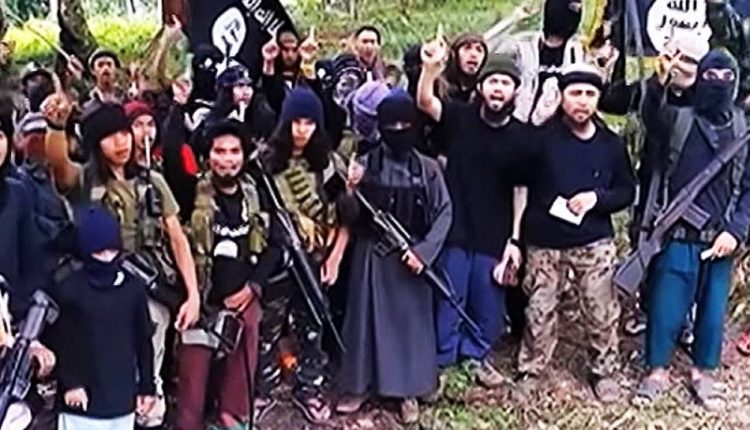SUPPORT FOR ‘ATB’ SNOWBALLS
PH risks credit access sans anti-terror law-- AMLC
AFTER being inundated by a barrage of communist and pseudo-liberal propaganda by the opposition grounded on lies and deceptions in the last three weeks along the line that the proposed ‘Anti-Terrorism Act of 2020’ is a threat to their fundamental civil and political rights, more and more Filipinos are now expressing support for its passage.
As of last count, 784 local governments (LGUs) and dozens more of non-government organizations (NGOs) have already issued resolutions and statement of support for the measure that is now only awaiting the signature of Pres. Rodrigo Duterte.
Prior to this, most Filipinos are taken in by the claim of well-known communist front organizations thru their social media posts and other gimmicks that the “ATB” (anti-terrorism bill) would result to illegal arrests and detentions, illegal surveillance and the suppression of their right to free assembly to express their legitimate grievances.
Also alleged were the suppression of press freedom and the equation of social activism, especially by the youth, to acts of terrorism.
The enrolled copy of the bill was transmitted to Malacañang on June 9 for the President’s signature amidst the start of its incessant demonization by suspected communist groups, the opposition and the gullible few among Filipinos.
But the painstaking effort by the government, especially by the NTF-ELCAC, and by Sen. Panfilo Lacson, the bill’s principal author, to explain the measure’s merits and its importance to national security, is now clearly paying off.
Lacson, in repeated media briefings, also bewailed that during the duration of the public hearings the Senate had conducted, the country’s self-proclaimed ‘human rights’ advocates never bothered to attend to put on record their apprehensions about the measure.
Only this year, prior to the ATB’s being sent to Pres. Duterte, Filipinos suddenly reminded themselves that there have been numerous attacks by terrorist groups that resulted to casualties, especially in the ranks of government security forces and destruction of both private and public properties. And these did not include the terrorists’ occupation of Marawi City in 2017:
April 17, 2020– 11 soldiers were killed and 14 others wounded during an encounter with suspected ASG (Abu Sayyaf Group) members in Brgy Danag, Patikul, Sulu; last May 27, six thousand residents of Maguindanao had to abandon their homes because of terrorist attacks.
Last June 5, while the ATB’s opponents are upping the ante of their propaganda, the AFP lost four more soldiers while 17 others were injured in another military encounter with members of the ASG in Sitio Lagaron in Barangay Kan-Ague, Patikul, Sulu.
On the other hand, the communist New People’s Army (NPA) were also recorded to have committed atrocities: 21 March, 2020 in Iligan city, the 44th Infantry Battalion (44th IB), Philippine Army, thwarted the attempt of the NPA disrupt a government information campaign on COVID-19 in Kabasalan, Zamboanga Sibugay.
In Luzon, a soldier was killed on March 28 after the NPA ambushed them in Bgy. Puray, Antipolo, Rizal, while distributing relief goods to residents adversely affected by community lockdown imposed on the entire island to combat the pandemic.
In the Visayas, in Eastern Samar, the NPA also descended in Bgy. Guinmayohan, Balanggiga, on April 7 and forcibly took away the relief goods meant for the starving population for their own use.
Only last June 15, Philippine National Police (PNP) chief, P/Gen. Archie Gamboa, was “greeted” by the NPA during his visit to South Cotabato with the burning of heavy equipment worth P20 million in the town of Tboli.
Because of these terrorist atrocities and the Philippines’ inability to address terrorism effectively for so long now, it is now ranked ‘Number 9’ in the ‘2019 Global Terrorism Index,’ which, notably, is one rank higher from its previous ranking.
As such, the country is now in the embarrassing league of countries already torn apart by terrorism such as Afghanistan, Syria, Iraq, Somalia and Yemen, among others.
PH risking credit standing without new anti-terror law
The country’s “AMLC” (Anti-Money Laundering Council) in a statement addressed to supporters and opponents alike of the ATB also warned that failure to enact a new anti-terrorism law would mean more difficulties for the Philippines in acquiring loans from other countries due to the issue of terrorist financing and money laundering.
According to the Reuters dispatch dated June 13, “Failure to do so could lead to the Philippines being included in the global watchdog’s grey list which could hurt the economy, already reeling from the impact of the COVID-19 pandemic.”
“The Philippines’ inclusion in the grey list will result in an additional layer of scrutiny from regulators and financial institutions,” Reuters said, quoting the AMLC. At risk also is the country’s effort of an “A” credit rating from foreign lenders, the report added.
The ‘global watchdog’ being referred to is the Intergovernmental Financial Action Task Force formed to combat global money laundering.
(Updated: 12:04 pm, June 24, 2020



